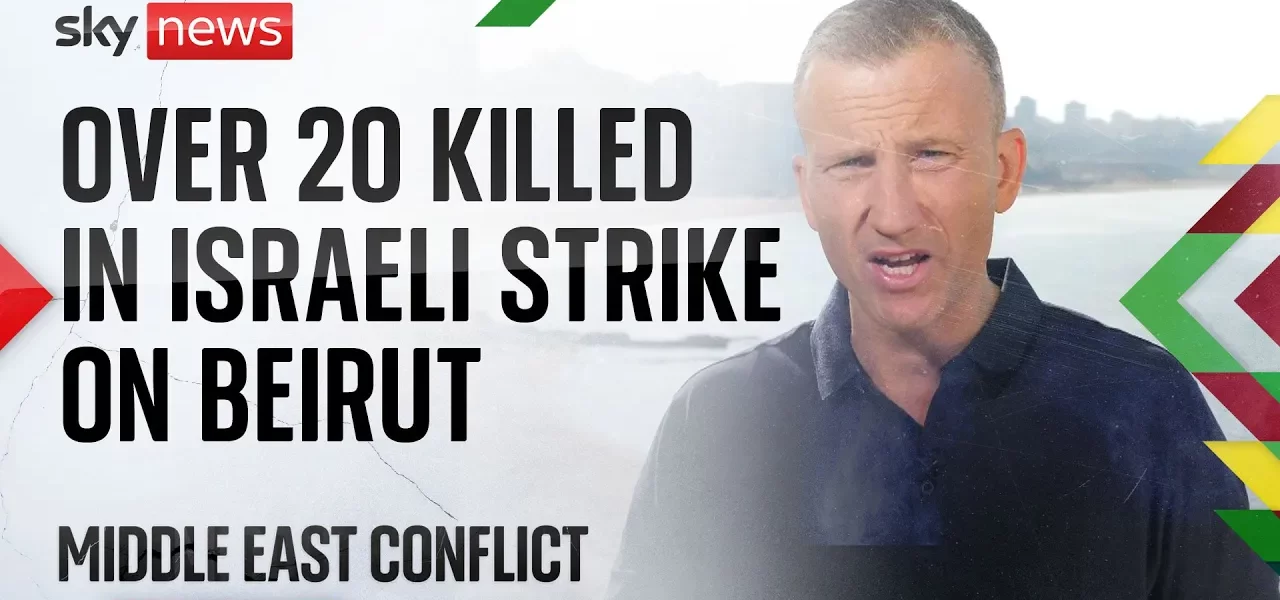Significant Escalation: Israeli Airstrikes in Central Beirut

This article explores the recent Israeli airstrikes in central Beirut, which resulted in numerous casualties and marked a significant escalation in the ongoing conflict in the Middle East. We delve into the context, implications, and potential future developments in this volatile region.
Introduction
The recent Israeli airstrikes in central Beirut have resulted in at least 22 fatalities and left 117 individuals injured, marking a pivotal moment in the ongoing conflict in the Middle East. This incident is particularly alarming as it represents the deadliest attack on the Lebanese capital since the onset of the current hostilities. The airstrikes targeted densely populated residential areas, causing widespread panic and raising concerns about further escalations in violence. This article examines the circumstances surrounding the attacks, the targeted individuals, and the broader implications for regional stability.
The Context of the Airstrikes
Background of the Conflict
The Middle East has been a focal point of conflict for decades, with various factions vying for power and influence. The ongoing tensions between Israel and Hezbollah have been exacerbated by external influences, including Iran’s involvement. The recent airstrikes can be viewed as a response to the heightened threats perceived by Israel, particularly in light of recent missile threats from Iran.
Details of the Airstrikes
The airstrikes occurred around 7:30 PM, targeting two buildings in a central area of Beirut that had previously been considered relatively safe. Eyewitnesses reported hearing the screech of jets followed by explosions and plumes of smoke rising from the buildings. This choice of target underscores the significant escalation of violence in a region that had seen a temporary reprieve from direct attacks.
Casualties and Immediate Impact
- 22 confirmed dead
- 117 injured, with numbers expected to rise
- Major damage to residential infrastructure
This attack not only resulted in loss of life but also instilled fear among civilians who believed they were safe in central Beirut. Many had fled from the southern suburbs, which had been under frequent attack, seeking refuge in areas that were considered less vulnerable.
Targeting Hezbollah Leadership
Who Was Targeted?
Reports indicate that the strikes aimed at a senior Hezbollah leader, Wafik Sappa, who plays a crucial role as a liaison between Hezbollah and external entities. His involvement in coordination efforts has made him a significant target for Israeli defense operations.
Survivability and Reactions
Despite the intensity of the airstrikes, sources from Hezbollah have claimed that Sappa survived the attack. This raises questions about the effectiveness of targeted operations and the potential for retaliation from Hezbollah in response to this significant loss.
Potential for Further Escalation
Responses from Israel and Iran
Israeli officials have indicated that their military response will be calculated and precise. Defense Minister Yv Galant has emphasized that future actions will be both lethal and targeted. The uncertainty surrounding Israel’s next moves keeps regional tensions high, particularly in relation to Iran’s potential involvement.
Diplomatic Efforts and Concerns
Amidst the rising tensions, there are ongoing diplomatic efforts to de-escalate the situation. However, the effectiveness of these negotiations remains uncertain. The fear is that any retaliatory measures from Iran could trigger a wider regional conflict, drawing in various factions and further destabilizing the area.
Conclusion
The recent Israeli airstrikes in Beirut represent a dangerous escalation in the ongoing conflict, resulting in significant casualties and raising the specter of further violence in the region. As both Israel and Hezbollah navigate this tense landscape, the potential for further military engagement looms large. It is crucial for the international community to remain vigilant and engaged in diplomatic efforts to prevent a broader conflict. For those seeking to stay informed on this evolving situation, we encourage you to follow related articles on this website for updates and analyses.
“`




